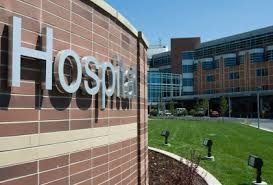
Those in the medical profession can attest to the “at-risk” nature of their profession. Obviously those working in the typical hospital environment face the greatest number of concerns, but even private practices and medical clinics of various specialties are not immune.
Within the classic hospital scenario, there are three major areas of potential vulnerability for those working in such environments:
1) Emergency Room — this is obvious to most as even images of ER on television shows illustrate the highly emotional and volatile nature of what comes through the door of the ER. Whether drugs, alcohol, domestic violence, gang violence, or street violence related, most understand the potential risks of working in this area of the hospital.
2) Front Desk/Admissions — now this one may give you pause asking “why this area?” The same issues of highly emotional people come into play here as well. If someone feels they or their loved ones are not being attended to as fast as they would like, if they feel that insurance and admissions paperwork is taking too long, all these can escalate an already-charged situation. Such frustration can easily manifest in physical confrontations and/or violence.
3) Billing/Collections — another area most would not think of. But when the bills start coming in, bills the insurance company cannot or will not cover, bills that could force a person or family into bankruptcy, bills that carry never-ending calls or letters, these too can send someone potentially “over the edge” as they seek to silence their collectors.
But as stated above, it is not just hospitals, but other medical facilities and personnel as well. I have often heard the husbands of wives who work as doctors, nurses, or technicians on the graveyard shift walking out into parking lots or garages with no escort, fatigued from a long shift, and mentally distracted. Such individuals make for easy prey to would-be predators.
And then there are always the “unknown dramas” that can follow a staff member onsite. Such was the case just a year or so here in Dallas when the executive secretary of one of our local hospital administrators was gunned down and killed in the parking garage by her ex-husband, an armed guard at a local religious school. One doctor several years ago was also gunned down at Johns Hopkins as he delivered bad news to the son of a dying mother who did not take well to the news, killed the doctor, killed his mother, and then killed himself.
And what about when such situations “do” occur? If these happen on the clock, there is obviously the crime scene aspect that can affect operations, HR and even PR as (rest assured) hospital administrators will be answering to local news following such tragedies. If they happen off the clock, these still become HR issues as now someone has to cover that day, that shift, that person’s responsibilities. And what if that person, the victim, truly had an area of specialty at the hospital or clinic? How difficult will it be to find a replacement for them, even if only temporarily. And what of the criminal and/or civil case that follows? Who is then taken away from their jobs for these appointments? All because administration did not think proactively.
Such stories speak to why those in the medical profession must take care. Trouble Spotters offers programs that can help address such concerns, helping to make doctors, nurses, and other staff more aware of their surroundings, their vulnerabilities, and their potential strategies for prevention. If interested, email us to learn more.
Jeff McKissack, Founder
TroubleSpotters.com